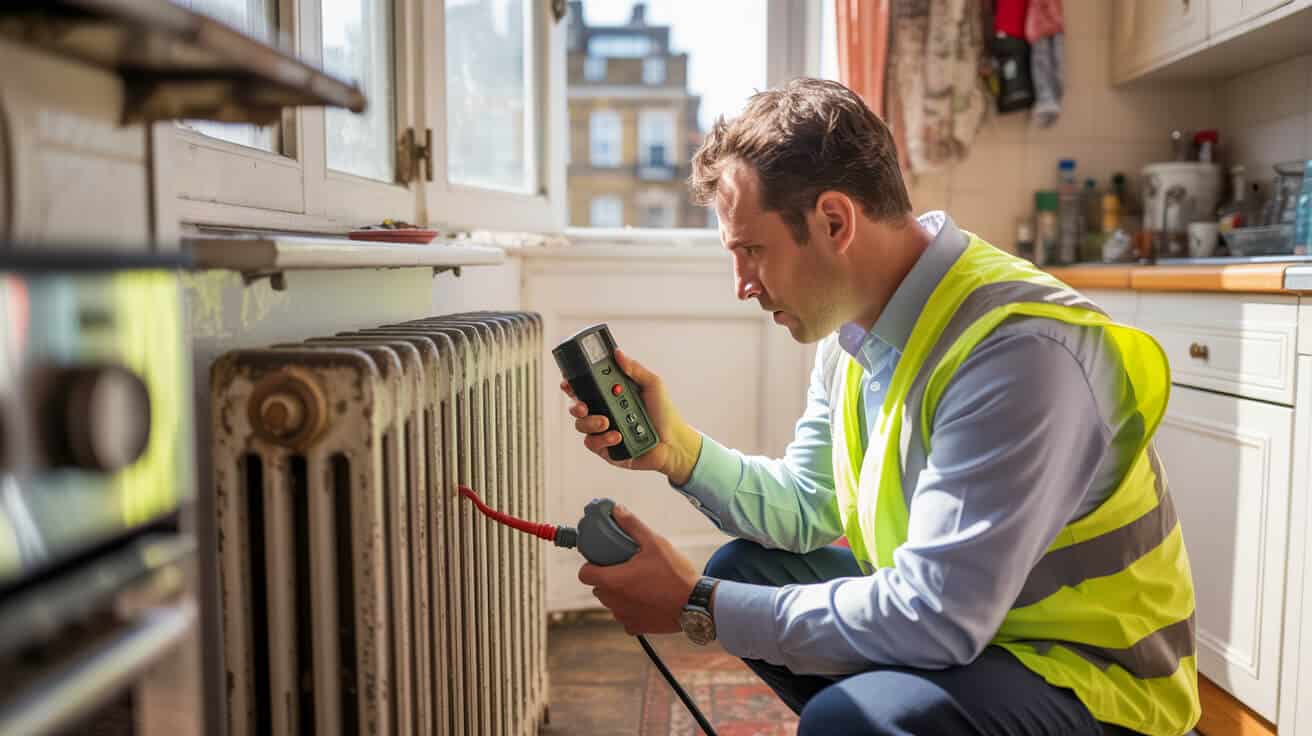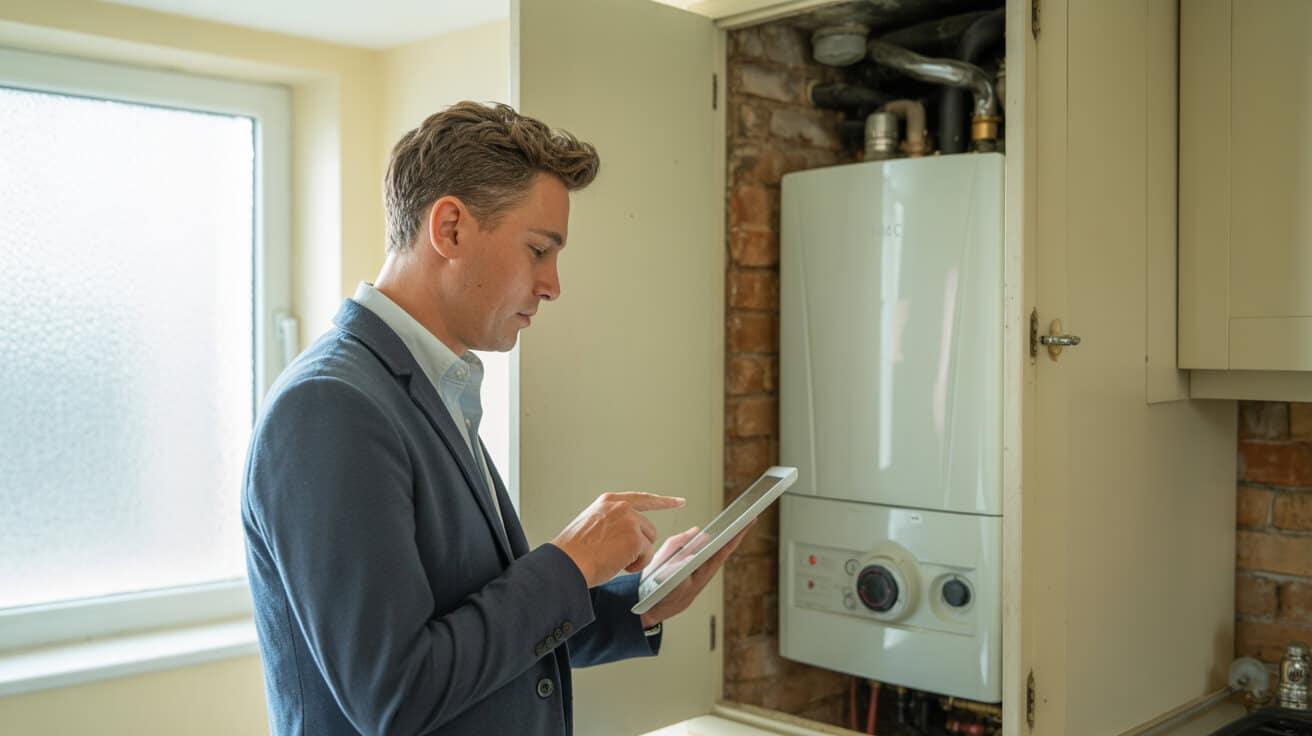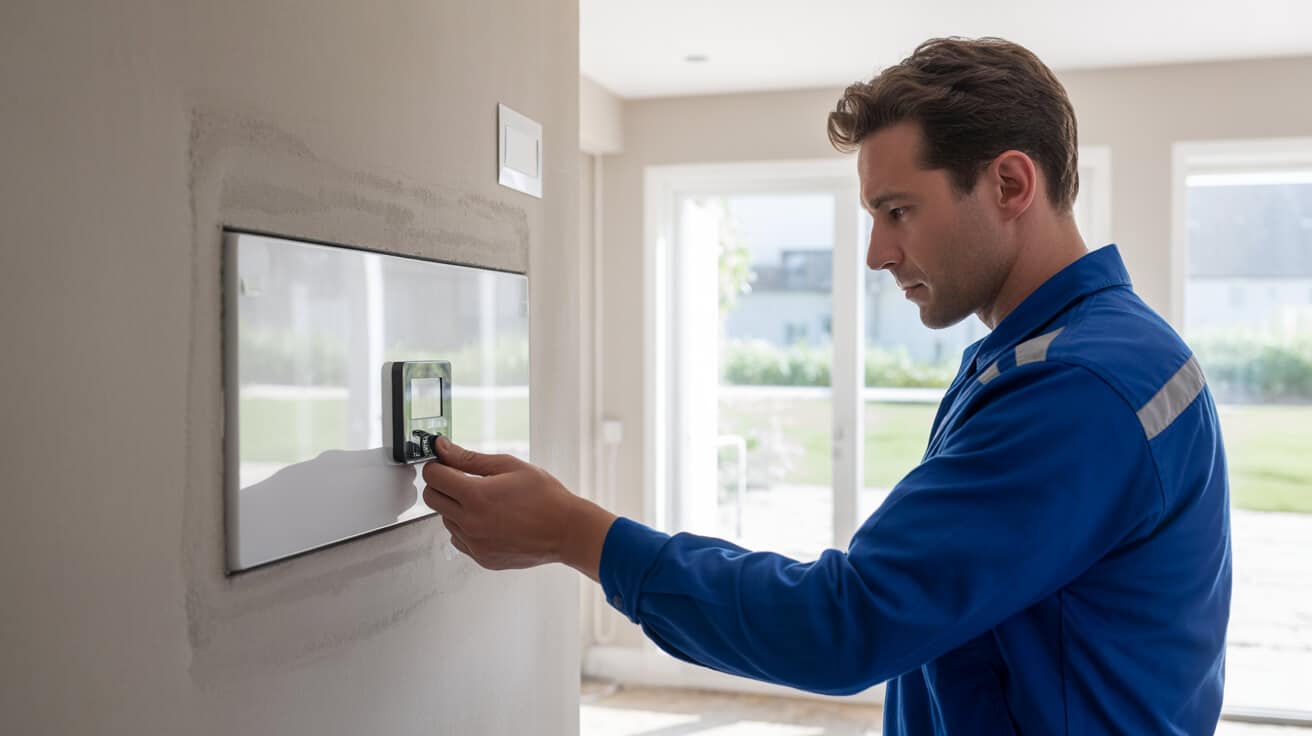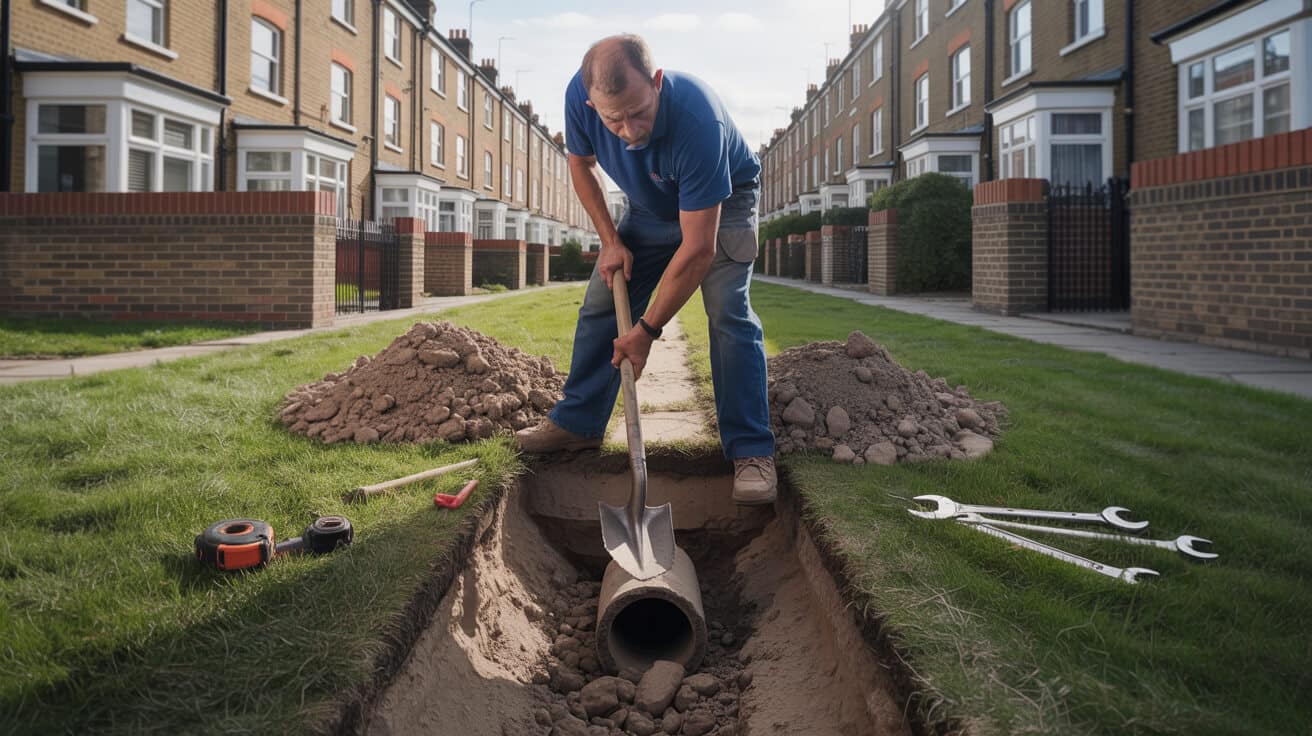 The Best Ways to Heat a Uk Home a Systems Comparison
The Best Ways to Heat a Uk Home a Systems Comparison

What’s the Smartest Way to Heat a UK Home in 2024—And Are You Paying Too Much for “Good Enough”?
Getting heating right in 2024 is less about picking a boiler or chasing the latest energy trend, and more about matching your system to your property, usage, and legal lane. For UK homeowners, landlords, agents, and property managers, that means outgrowing default choices—and realising that “doing nothing” carries silent costs, from overblown bills to compliance risks tightening with every new regulation.
Most properties don’t fail from breakdowns—they get left behind when good enough quietly stops being legal, comfortable, or saleable.
At Plumbers 4U, we see it first-hand: homes and buildings held back by equipment or controls that suited a decade ago, quietly draining the owner’s wallet while silently jeopardising rental or resale value. “Smarter” doesn’t mean fanciest; it means knowing your actual heating demand, fabric, compliance status, and future plans—then picking the system and controls that stand up to surveyors, tenants, insurers, and rising energy prices.
Comfort, cost, compliance, and control: that’s the quadrangle where property owners win—or lose. Choosing when nobody is looking is what future-proofs your asset, not chasing sales headlines or waiting for a failure. Let’s put the evidence on the table, challenge the “boiler logic” of 20 years ago, and hand you a framework that dodges silent errors, grant regret, and EPC surprises.
Which Heating System Actually Fits Your Property—and Why “Best” Is Bigger Than Price or Trend

No two buildings fit the same “heating best buy”—and the worst mistake is assuming that whatever’s “modern” or “tried-and-true” will automatically suit your property, compliance status, and future intent. The right option isn’t just a function of what costs less now, but which system keeps you legal, controllable, comfortable, and saleable as standards shift.
73% of UK homes still rely on gas—mainly due to legacy infrastructure, not always best fit (commonslibrary.parliament.uk).
How Do Building Factors Shape Your Best System?
- Fabric & Insulation: Solid-wall terraces leak heat; new builds and retrofits hold it in. system efficiency varies wildly with the property’s envelope.
- Fuel Access: Are you gas-on-grid, off-grid, or electrical-only? Main heat pumps, oil, or old lumpy storage heaters—each comes with its own running and instal reality.
- Occupancy Patterns: A full house all day, a single commuter, a multitenancy block—daily usage and hot water draw shape heating needs and controller setup.
- Upgrade Scope: Is this a full refurb, a rapid fix, or a like-for-like swap? Some properties demand all-in upgrades to see real results.
- Compliance & Futureproofing: Forthcoming EPC changes and MEES standards (for landlords) mean passing today isn’t passing tomorrow.
Smart choices start with matching system type to your building’s quirks, regulatory journey, and user habits—not the installer or sales company’s “default.” Landlords who rely on yesterday’s controls risk MEES fines and voids. Homeowners relying on legacy instals face rising energy pain. The result: the cheapest up-front isn’t the best fit unless it also locks in future comfort, value, and compliance.
Hoping that cheap fixes will dodge coming regulation is like painting over damp—you don’t see the true cost until it’s too late.
Are Gas Boilers Still the Safe Pick, or Are You Building in Tomorrow’s Problems?

No question: the gas boiler is still what most UK homes run—and for many, it remains a practical, affordable choice. Instal costs, wide engineer support, and running bills that undercut direct electric mean gas persists in millions of homes. But the game has changed: today’s legal minimums and coming policy changes mean that holding on to an old, single-stat gas setup just piles up risks.
Typical instal: £2,000–£4,000 (standard combi/system swap).
Annual bills: ~£1,200 (average 3-bed home, energysavingtrust.org.uk).
What’s Changed?
- Controls: Since Boiler Plus, you must combine new gas boilers with smart/programming controls and, for many, room zoning—old dials or “on/off” thermostats now flag EPC fails and rental compliance gaps.
- Longevity: Keep your boiler freshly serviced and updated, but expect an increasing nudge to hybrid/crossover upgrades over time as gas phase-down policies emerge.
- Grants & Perks: Fewer for off-the-shelf gas now, but smart controls/timers help maintain some eligibility and keep the door open for later hybrid/renewable integration.
Summary:
Gas is still safe, if you future-proof with legal controls, keep documentation, and prep for low-carbon top-ups or swaps within ten years.
A smart thermostat can trim 5–10% off gas bills—Energy Saving Trust, 2024.
If your system lacks zoning, open-therm modulation, or digital/stat integration, you’re paying legacy costs and risking failed inspections. Plumbers 4U can check and upgrade for control compliance and energy-saving, keeping properties both legal and warm through the decade.
Does Electric Heating Save Money or Just Shift Your Pain to the Bill?

electric heating systems—the “quick win” for everything from city flats to student lets—promise instal simplicity, broad control options, and less compliance wrangling. What they hide is ongoing cost, especially in any property with above-average demand or leaky construction.
Instals: £1,500–£4,000 (panel heaters/storage/small boilers); fit in days.
Bills: £1,500–£2,200 for standard occupancy. Electric per-kWh often double gas.
- Good for: Flats, BTLs with uncertain occupancy, off-grid sites, or when gas isn’t an option.
- Risk: High running cost for families and large/draughty homes; old-style storage units tank EPC scores and make controller upgrades harder.
Where electric thrives is in “space-by-space” use—zoned, remote, and app-controlled for part-time occupancy. Pair with off-peak tariffs and smart schedules to stay sane, but beware: for whole-house comfort, nothing will save bad insulation or leaky windows. Electric done badly means bill shock and poor EPCs.
Cheap won’t stay cheap if your house is older, bigger, or under-insulated. Controls matter more than style.
Landlords: New rental rules often demand post-2023 smart stats, documented safety, and controller logs to remain lettable. Homeowners: add “quick fix” electric only if you’re future-proofing the structure and have plan for the next phase.
Are Heat Pumps the Silver Bullet or a Setup for Regret in Your Building?

No system has been hyped as long-term as air source (ASHP) and ground source (GSHP) heat pumps, and for good reason—when matched to an insulated envelope, they drive both bills and carbon down, and turn government grants into real cuts on instal.
Typical instal: £6,000–£15,000 (after £7,500 grant); new builds at the lower end, retrofits can be higher.
Annual bills: £800–£1,100 in well-matched properties.
But Not Every Building Is Ready
- Success requires: Strong insulation, airtight windows/doors, and oversized rads or underfloor for low-temp delivery.
- Pitfalls: Drop-in swaps yield underwhelming results without property upgrades. Bad design or lack of MCS-accredited installer often means ongoing complaints and lost grants.
- Best outcome: High EPC gain, future compliance, resale value, and minimal running costs—provided you’ve done the groundwork.
Landlords & Agents: Marketing heat pump homes brings compliance and saleability; but misfit instals result in voids, call-backs, and low tenant satisfaction.
Homeowners: Factor in insulation and delivery upgrades for true savings—not just the new hardware cost.
Should You Still Consider Oil, LPG, or Biomass—Or Does the Sunset Mean Move On?

Oil and LPG still keep thousands of UK rural homes comfortable. Their appeal: independence from the gas grid, sturdy old-fashioned reliability, and a local repair culture. But future regulation and insurability are catching up. Biomass, meanwhile, is attractive for greener portfolios but comes with higher entry costs and hands-on management.
| System | Instal Cost | Annual Bill | Where It Makes Sense |
|---|---|---|---|
| Oil/LPG | £3k–£6k | £1.4k–£2.8k | Rural/off-grid, no mains gas, legacy |
| Biomass | £10k+ | £900–£1.7k | Eco/grant-funded, large plot |
Policy shift is the wildcard—if you’re off-grid, plan for change now, not when regulations or grants disappear.
- Oil/LPG risks: Fewer grants, tightening controls. Properties face sunset clauses over coming years.
- Biomass reality: Green bonus, but higher cost and involvement; works for large homes or with resident management.
Landlords: Early planning is critical; like-for-like swaps might not be possible over next renewal cycles.
Owners: The right prep and documentation future-proofs your system—failing that, you may face forced upgrades at the wrong time.
Do Hybrids, Zoning, and Smart Controls Change the Game—or Just Add Bells and Whistles?

Modern heating isn’t just about “the main system,” it’s about how energy is used—minute by minute, zone by zone. Hybrid boilers (combining gas/oil with heat pump logic), smart stats, and room-by-room controllers are now crucial for legal compliance and real comfort.
Three Key Upgrades
- Hybrid Heat: Lets the system pick between gas, electricity, or stored energy for best efficiency and cost per hour. Lowers carbon and future-proofs against fossil fuel sunset dates.
- Smart Controls & Zoning: Now mandatory on new instals (Boiler Plus, MEES territory), smart/app controls give each space or tenant its own schedule.
- Automated Schedules: Weekly plans, remote access, usage tracking, and “warm up for arrival” features are additional lines of compliance for landlords and a life upgrade for private owners.
Holistic system upgrades don’t just lower bills; they protect rental and resale value by embedding compliance and user control into the fabric of the property.
Rentals/Commercial: Remote management, audit trails, and zone flexibility mean you’re future-safe and appeal to modern tenants.
Homeowners: Automated controls deliver better comfort and often real bill savings. Your installer should handle digital handover and future support—not just the kit.
How Do the Most Common UK Heating Systems Actually Compare—Cost, Compliance, and Fit?

The wrong system—no matter how “state-of-the-art”—means years of overpay, failings at the next survey or let, and a legacy risk for your family or stakeholders. Here’s how systems stack up for a typical UK property (2024):
| System | Upfront Cost | Bill (yr) | Best For |
|---|---|---|---|
| Gas Boiler | £2k–£4k | £1,200 | On-grid, simple upgrades |
| Electric | £1.5k–£4k | £1.5k–£2.2k | Flats, BTLs, stopgap/off-grid |
| Heat Pump | £6k–£15k* | £0.8k–£1.1k | Insulated/new-build, EPC focus |
| Oil/LPG | £3k–£6k | £1.4k–£2.8k | Rural, off-grid, no-mains legacy |
| Biomass | £10k+ | £0.9k–£1.7k | Grants, large/eco, plot space |
| Hybrid | £3k–£18k | Varies | Large, zoned or hybrid projects |
*Instal less grant (£7,500 off for many). Figures: Plumbers 4U, Energy Saving Trust.
- Compliance isn’t optional: GasSafe, WRAS, G3 and OFTEC certificates are mandatory if you want to stay legal and insured (especially for landlords and managed blocks).
- Grant eligibility: Check before replacing; schemes can swing costs dramatically, but cut-off dates are unpredictable.
- Long-term fit: “Chasing trends” or “copying next door” can set you up for years of frustration and extra cost—a proper pre-assessment is the antidote.
Cutting corners up front means double bills and double pain at the next compliance check. The system must match your property—nothing less.
Why Plumbers 4U’s System-First Approach Shields You from Tomorrow’s Heating Headaches
Installing heating with one eye on today and one on tomorrow isn’t just a slogan—it’s the only way to avoid hidden costs, failed EPCs, and rental headaches. Plumbers 4U’s audit walks your property from insulation to last valve, then maps options tied to your actual needs (water, heat, usage, and obligation).
- Full System Check: Details your insulation, pipework, controls, cylinder sizing, and future hybrid/zoning compatibility.
- Transparent Pricing: Every job is scoped line-by-line. No price creep, no “just trust us” on certificates or extras.
- Grant/Certificate Mapping: Our team checks every part for eligibility and fill every form for Boiler Plus/BUS/MEES/CP12/G3/Warranty validation.
- Aftercare and Documentation: Digital handover of certificates, setting explanations, and future reminders for safety and compliance.
- No Gimmicks: The advice is honest—sometimes that’s a minor tweak, sometimes it’s a deep upgrade. No upsell, no silence on lifetime cost.
Heating isn’t about the box on the wall, but about how you use, control, and future-proof every system around it.
You’ll understand your system’s logic and risks, not just “where to press for hot water.” Service-first means your warm, compliant, future-ready core is built into the instal, not bolted on after.
Book a Stepwise Audit—And Move from Heating Risk to Lasting Advantage
Guesswork and hope aren’t strategies. In 2024, every heating decision is an investment in resale, comfort, compliance, and future utility bills. Plumbers 4U arms you with facts, a multi-system audit, transparent quotes, and certified, up-to-the-minute legal compliance.
- Certified Expertise: GasSafe, G3, OFTEC, and WRAS-registered engineers, with documented procedures.
- No Hidden Costs: Transparent pricing on every part and certificate. No half-explained extras.
- Compliance-First: Instals go through every sign-off needed for letting, resale, warranty, and EPC.
- Futureproofed Comfort: More than just warmth now—control, compliance, and clarity for years ahead.
Houses and portfolios work hardest for owners who pick the right system at the right time—with the right team behind them.
Book your system-fit audit today—let Plumbers 4U turn heating complexity into straightforward comfort, security, and value.
Frequently Asked Questions
How does your property’s design and insulation determine the most effective heating system?
The most efficient heating system for your property is tightly linked to how well your building retains heat and how it’s wired for energy and fuel sources. Not every acclaimed upgrade or modern heat pump is a wise fit for every space. Instead, success comes from understanding your property’s construction, insulation, and technical limitations—then matching that to the right technology.
In well-insulated new-builds, you can capitalise on air or ground source heat pumps, especially when there’s space to fit larger radiators or underfloor heating. For older homes with solid walls or single-glazing, direct swaps to high-tech solutions rarely work out—without upgraded insulation, you risk higher bills and disappointing performance. In flats or maisonettes where flues can’t be installed or gas is unavailable, electric panel heaters or storage solutions are often chosen, but this convenience typically comes at the cost of higher, ongoing electricity prices. Off-grid and rural properties, meanwhile, often resort to oil or LPG, yet are increasingly pressed by changing subsidies and more demanding environmental rules.
Heating comfort isn’t about what’s trendy—it’s about what your walls, windows, and pipework can truly support.
Which features of your property should guide your heating choices?
- Insulation depth & window ratings: Upgrades here immediately improve heat retention and can trigger grant eligibility.
- Pipework condition & radiator size: Heat pumps and modern boilers usually require new, larger radiators and pipe runs for optimal results.
- Fuel and power infrastructure: The availability of gas, electrical supply, and flue potential all govern what’s possible or permitted.
- Layout and space zoning: High ceilings, open layouts, and extensions need precise heating calculations and controls to prevent cold spots.
Why is a tailored property survey vital before any upgrade?
Skipping an in-depth survey most often leads to a mismatch—systems straining in the wrong context, bills running over budget, and grant eligibility falling through the cracks. certified engineers who measure, model, and document your property’s unique constraints can recommend a system that will hold up under both current use and future legal requirements. A thorough survey also opens up bespoke options, such as splitting zones or layering controls and insulation in a way that maximises both comfort and investment life.
What’s the real cost difference between heating systems—and where do hidden expenses catch property owners out?
The overall running cost of any heating system depends on far more than installation: ongoing energy bills, component upgrades, insulation quality, and government rules all play a part. Heat pumps can impress with annual bills as low as £800–£1,100 if properly fitted and matched to well-insulated homes. However, if you skip recommended radiator upgrades or estimate insulation gains too generously, those numbers can quickly lose their shine.
Standard gas boilers, though easier to instal and support, now cost about £1,200–£1,400 a year for a typical property. From 2025, new-builds won’t be able to use them at all; older homes can, but only if you update controls and meet ever-tightening standards. Electric heating works well for compact flats where space and simplicity are priorities—installation is attractively low, sometimes from £1,500—but electricity’s higher unit price means annual bills can easily reach double those of modern gas systems in larger households.
How do compliance and control requirements hit costs?
Installation without proper thermostats, zoning, and efficiency controls is a classic trap: grant applications get refused, warranties are voided, and property sales are delayed by missing paperwork. Landlords not updating EPC ratings or failing MEES standards face fines and tenant complaints.
Table: Heating system costs and risks (UK 2024)
| System | Instal (£) | Yearly Bill (£) | Compliance Demands | Hidden Costs |
|---|---|---|---|---|
| Heat pump | 7–15k | 800–1,100 | Grant paperwork, insulation | Specialist servicing, radiators |
| Gas boiler | 2–4k | 1,200–1,400 | Smart controls, EPC proof | Pipe replacement, flue reroute |
| Electric | 1.5–4k | 2,000–3,000 | Digital controls, timer | Tariff management, grid changes |
| Oil/LPG/Bio | 3–10k | 1,400–2,800 | Annual service, insurance docs | Fuel volatility, storage upkeep |
Hidden costs often come from skipped upgrades—such as connecting a heat pump to old, undersized radiators—or ignoring documentation standards, which can add months and thousands of pounds if rushed.
Where do most property owners miscalculate the true investment and upgrade cycle of heating systems?
Headline installation costs rarely reflect the lifetime spend. The biggest missteps are underestimating the impact of new regulations, grant paperwork, or local energy prices on your ten-year cost projection. Gas boiler replacements typically run £2,000–£4,000, especially with all new controls—yet many owners are surprised by hidden extras like flue changes, radiator swaps, and compliance certificates required at resale or letting.
For electric heating, it’s the running costs that add up fast—what starts as a £1,500–£4,000 instal can lead to energy bills that far outstrip gas, especially in poorly insulated or high-use properties. For heat pumps, upfront quotes of £7,000–£15,000 (or much higher for ground source) can be reduced by Boiler Upgrade Scheme grants or local authority top-ups, but only if your property and installer meet every eligibility rule from the outset.
Table: “All-in” heating investment over time (2024)
| System | Average Instal | Typical Annual | Key Lifetime Extras |
|---|---|---|---|
| Gas boiler | £2-4k | £1,200–1,400 | Controls, regular service |
| Electric | £1.5-4k | £2,000–3,000 | High-use costs, tariff switch |
| Air source HP | £7–15k (less grant) | £800–1,100 | Radiator upsizing, servicing |
| Oil/LPG/Bio | £3–10k | £1,400–2,800 | Fuel price swings, storage |
Location also changes the maths: quotes in the South East or London can easily edge up by 10–20% due to labour, access, or compliance demand. Only a documented, region-specific quote—including all compliance and grant hurdles—protects you from unwelcome surprises.
How do you make your heating choice resilient to shifting regulations and energy policies?
Policy doesn’t stand still—what counts as legal (or insurable) today may be obsolete in two years. MEES and EPC requirements already push insulation and digital controls above any new appliance. For future-proof upgrades, the best order is: seal the heat in (insulation, double glazing, draughtproofing), then select a system that provides compliance flexibility, such as a hybrid setup or one that can be updated later with minimal extra works.
Heat pumps installed by MCS-accredited teams with smart controls not only qualify for grants now but also stand up to future carbon targets and buyer/tenant demands. Gas boilers remain viable if freshly installed with A-rated, zoned controls, but their compliance runway is shortening—with newbuilds banned from 2025.
Upgrading now without thinking about next year’s rules is like fixing the roof after winter’s begun.
Why combine upgrades and bundle documentation?
Layering insulation upgrades with a targeted heating system installation maximises both comfort and compliance, often unlocking deeper grants. Keeping every certificate, warranty, and installer credential on file is now critical—insurance claims, letting agency checks, and resale valuations increasingly require digital proof.
Table: Future-readiness by system (2024+)
| System | 2025 + Compliant? | Must-Haves | Policy Risk |
|---|---|---|---|
| Heat pump | Yes | MCS instal, smart stat | Low |
| Gas boiler | Partial | Zoning, A-rating, docs | Rising: newbuild ban |
| Electric | Depends | Smart timer/stat, insulation | Tariff, grid risk |
| Oil/LPG/Bio | Weak | Paperwork, annual proof | High |
Booking a compliance-ready survey before upgrades—Plumbers 4U can facilitate this—keeps your property ahead of both rule changes and market expectations while safeguarding all available financial perks.
Which UK heating incentives and grants could you access now, and what documentation secures your claim?
The hunt for heating grants means staying abreast of rapid policy changes and new pilot schemes. Key funding in 2024 includes the Boiler Upgrade Scheme (up to £7,500 for heat pumps), ECO4 (grant variable, focused on insulation or boiler swaps for eligible groups), and local/regional bonuses for zero-VAT or hybrid system proposals. Yet the gold standard is preparation—knowing that “like-for-like” swaps (e.g., old gas to new gas without further efficiency gains) won’t qualify for any public cash.
What steps guarantee you don’t miss out on funding?
- Choose an accredited installer: Only MCS or TrustMark fitters can unlock government or council support.
- Collect every certificate in real time: EPCs, installer qualifications, warranties, service checklists—these are proof and must be ready before claims go in.
- Apply before you begin: Grants and funding only cover work that’s pre-approved; wait to claim, and you’re usually out of luck.
- Research location-based extras: Some English, Welsh, and Scottish councils are topping up national grants or offering free insulation if you upgrade systems.
Most grant rejections are caused by missing, misfiled, or late documentation, not a lack of eligibility.
Table: Leading heating grants and how to secure them (2024 snapshot)
| Grant | Up to (£) | For which system | Essential documentation |
|---|---|---|---|
| Boiler Upgrade | £7,500 | Heat pumps, some hybrids | MCS cert, EPC, pre-approval |
| ECO4 | Variable | Boilers/insulation, targeted | Trustmark/MCS, income docs |
| Zero VAT | Full | Eco-upgrades, insulation | Registered installer, receipts |
| Local bonuses | Varies | Any system/insulation | Regional rules, grant letter |
Work with Plumbers 4U to secure an eligibility review and application before any physical works start—maximising your savings, and avoiding last-minute paperwork pitfalls.
Are gas boilers really banned after 2025 in UK properties, or is policy more nuanced—and what’s your safest upgrade plan?
UK regulations around gas boilers are changing, but for existing homes there’s no blanket ban arriving in 2025. The policy change targets newbuilds (from 2025), with additional phases rolling out via devolved governments and councils. Current homeowners and landlords can still instal modern gas boilers, but only so long as the system meets new controls and documentation rules. Replacements will increasingly need A-rated smart controls and proof of compliance—for insurance, grants, tenancy, and eventual resale.
For new properties or those with recent insulation upgrades, air or ground-source heat pumps are the top performers for both comfort and carbon. Hard-to-adapt period homes and blocks may still rely on phased upgrades—improving insulation and controls ahead of any system swap. For landlords, tighter EPC rules and MEES will force action: prepping in advance avoids the scramble (and rising costs) that come as compliance windows shut.
What are the first moves for compliance and investment protection?
- Commission a compliance survey early: Identify tech, documentation, and controls that match both your future plans and your property limits.
- Centralise your proof: Assemble all installer/certificate evidence digitally—buyers, insurers, and tenants increasingly demand it before contract.
- Bundle improvements: Whenever possible, pair system replacement with insulation and control upgrades. Each layered improvement multiplies future compliance and financial gain.
Smart system upgrades aren’t just about warmth—they build asset value, safeguard lettings, and keep you ahead of the next policy shift.
Want to make sure your heating upgrade doesn’t just beat the weather, but also secures every grant, efficiency gain, and compliance tick? Plumbers 4U delivers certified property surveys, eligibility checks, engineer-led design, and seamless grant management—so you don’t risk your investment on the wrong system or out-of-date paperwork. Time your next upgrade with us and make your property ready for the future.



